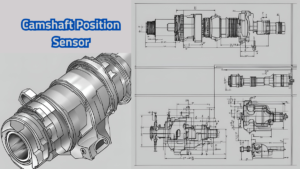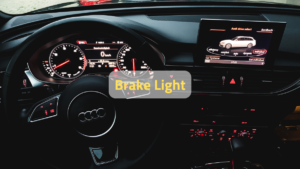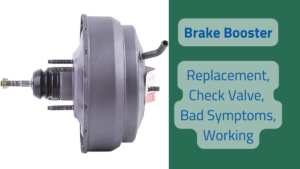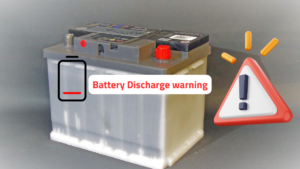Table of Contents
ToggleHow to Save Money on Car Insurance: Insider Tips and Tricks
Introduction
Car insurance is required for all drivers, but it does not have to be prohibitively expensive. Understanding how vehicle insurance works and applying some smart tactics might help you drastically cut your costs while maintaining coverage. In this post, we’ll look at some insider tips and tactics for saving money on vehicle insurance.
Understanding Car Insurance
Types of Car Insurance
Before we get into money-saving methods, it’s important to understand the many forms of car insurance available. These coverages include liability, collision, comprehensive, uninsured/underinsured motorist, and personal injury protection (PIP).
Factors Affecting Car Insurance Rates
Several factors influence auto insurance costs, including your driving record, age, location, credit score, vehicle type, and policy options. Understanding these characteristics can help you find strategies to reduce your insurance premiums.
Tips to Lower Car Insurance Premiums
1. Comparison Shop
Shopping around and comparing quotes from several insurance providers is one of the most effective ways to save money on auto insurance. Each insurer has its unique algorithm for calculating rates, so receiving estimates from multiple providers might help you locate the best offer.
2. Raise Your Deductible
Increasing your deductible—the amount you pay out of pocket in the event of a claim—can lower your monthly premiums. Just be sure you have enough savings to cover the higher deductible if you need to make a claim.
3. Bundle Policies
Many insurance companies offer discounts for bundling multiple policies, such as auto and homeowners insurance. Bundling can lead to significant savings on both policies.
4. Maintain a Good Credit Score
In many states, your credit score can impact your car insurance rates. By maintaining a good credit score, you may qualify for lower premiums.
5. Drive Safely
One of the most direct ways to keep your car insurance rates low is to maintain a clean driving record. Avoid accidents and traffic violations to qualify for the best rates.
Conclusion
Saving money on car insurance is feasible with the appropriate information and methods. You can save money by comparing prices, modifying your coverage, and driving safely. Take advantage of these insider tips and tactics to guarantee you’re getting the most out of your insurance coverage.
FAQs
Q: Can I save money by paying my car insurance annually instead of monthly? Yes, many insurers offer discounts for paying your premium annually rather than monthly. This can save you money in the long run.
Q: How can I find the best car insurance rates? To find the best rates, compare quotes from multiple insurance companies. Consider factors like coverage options, deductibles, and customer service when making your decision.
Q: Will my car insurance rates go down if I improve my credit score? In many cases, yes. Insurance companies often use credit scores as a factor when determining rates, so improving your credit score can lead to lower premiums.
Q: What is the minimum car insurance coverage required by law? The minimum coverage requirements vary by state, but most states require drivers to have liability insurance to cover bodily injury and property damage.
Q: Are there any discounts available for safe driving habits? Yes, many insurance companies offer discounts for safe driving habits, such as completing defensive driving courses or installing telematics devices that monitor your driving behavior.
Q: Can I negotiate my car insurance premium? While you can’t negotiate your premium directly, you can shop around for better rates and ask your insurer about available discounts or ways to lower your premium.
Q: How to choose an insurance policy for a car?
A: When choosing an insurance policy for your car, consider factors such as coverage options, deductible amount, premium cost, customer service reputation of the insurer, and any additional benefits offered.
Q: How to check which car insurance is better?
A: To determine which car insurance is better for you, compare factors like coverage limits, deductibles, exclusions, customer reviews, and the overall reputation and financial stability of the insurance company.
Q: Who is the cheapest car insurance?
A: The cheapest car insurance varies depending on factors such as your location, driving history, age, and the type of coverage you need. It’s best to compare quotes from multiple insurers to find the most affordable option for your situation.
Q: Which car insurance type is best?
A: The best type of car insurance depends on your individual needs and circumstances. Comprehensive coverage typically offers the most protection, but liability-only or collision coverage may be sufficient for some drivers.
Q: Which policy is better for car?
A: The best policy for a car depends on factors such as your budget, driving habits, and the level of coverage you desire. Comprehensive policies offer the most protection, while liability-only policies are more affordable.
Q: What is the full form of IDV?
A: The full form of IDV is “Insured Declared Value.” It is the maximum amount that an insurance company will pay if your car is stolen or completely damaged beyond repair.
Q: What is IDV in car insurance?
A: IDV, or Insured Declared Value, is the maximum sum insured amount that an insurance company will pay in the event of total loss or theft of your car. It is determined based on the car’s manufacturer’s listed selling price and depreciation.
Q: What is bumper to bumper insurance?
A: Bumper-to-bumper insurance, also known as zero depreciation or comprehensive insurance, provides coverage for all parts of the car, including the bumpers, without factoring in depreciation. It offers the most extensive coverage but may have a higher premium.
Q: Which insurance is best for private car?
A: Comprehensive insurance is generally considered the best option for private cars as it provides coverage for a wide range of risks, including damage to your own vehicle, third-party liability, theft, and natural disasters.
Q: What is the minimum car insurance cost?
A: The minimum car insurance cost varies by location and insurer. However, liability-only coverage is typically the most affordable option, with costs varying based on factors like driving history and the type of vehicle insured.
Q: What type of car insurance is cheapest?
A: Liability-only car insurance is usually the cheapest option as it provides coverage for damage to third-party vehicles and property, but not for your own vehicle.
Q: Which insurance is better for old car?
A: For old cars, a liability-only policy may be sufficient to meet legal requirements and save on premiums. However, comprehensive coverage may still be beneficial to protect against theft, vandalism, and other risks.
Q: Which motor car insurance is best?
A: The best motor car insurance depends on your specific needs and preferences. Comprehensive coverage is often recommended for its extensive protection, but liability-only or third-party insurance may suffice for some drivers.
Q: What is zero dep insurance?
A: Zero depreciation insurance, also known as bumper-to-bumper or comprehensive insurance, covers the full cost of repair or replacement without factoring in depreciation. It is especially beneficial for new cars.
Q: How to decide insurance for a car?
A: When deciding on car insurance, consider factors such as your budget, the value of your car, your driving habits, and the level of coverage you need. Compare quotes from different insurers to find the best option for you.
Q: Which protection is best for car?
A: Comprehensive protection is generally considered the best for cars as it offers coverage for a wide range of risks, including damage to your own vehicle, third-party liability, theft, and natural disasters.
Q: Which company is best for vehicle insurance?
A: The best company for vehicle insurance depends on factors such as your location, driving record, and specific needs. Some popular insurance companies include Geico, Progressive, State Farm, and Allstate.
Q: What is IDV?
A: IDV stands for “Insured Declared Value,” which is the maximum sum insured amount that an insurance company will pay in case of total loss or theft of your vehicle.
Q: Does car insurance cover 100%?
A: Car insurance typically covers a percentage of the damage or loss, depending on the type of coverage and the terms of the policy. It may not cover 100% of all expenses.
Q: Is TYRE covered under insurance?
A: In some cases, tire damage may be covered under comprehensive car insurance if it is caused by a covered peril such as vandalism, theft, or a road hazard. However, standard insurance policies often do not cover normal wear and tear.
Q: What is NCB in car insurance?
A: NCB stands for “No Claims Bonus,” which is a discount offered by insurance companies to policyholders who do not make any claims during the policy period. It rewards safe driving behavior and can lead to lower premiums.
Q: Which insurance is best for a car after 5 years?
A: After 5 years, comprehensive insurance may still be the best option for cars to ensure protection against various risks, including accidents, theft, and natural disasters.
Q: What is the best car insurance for beginners?
A: Beginners may benefit from comprehensive insurance, which offers extensive coverage for a wide range of risks. Additionally, some insurers offer specialized policies tailored to new drivers.
Read About
How do Spark Plugs Work without a battery
NGK spark plugs | 4 Types | Benefits | Simple Installation Guide | Comparison
Bosch Spark Plugs | 4 Types | Benefits | Simple Installation Guide | Comparison
10 Must Have Car Accessories for Every Driver | Best Gadgets
5 Tips for Buying Used Car | Avoid Costly Mistakes When Purchasing a Pre-Owned Vehicle













Very nice info and right to the point. I am not sure
if this is truly the best place to ask but do you guys have any thoughts
on where to employ some professional writers?
Thanks 🙂 Escape rooms hub